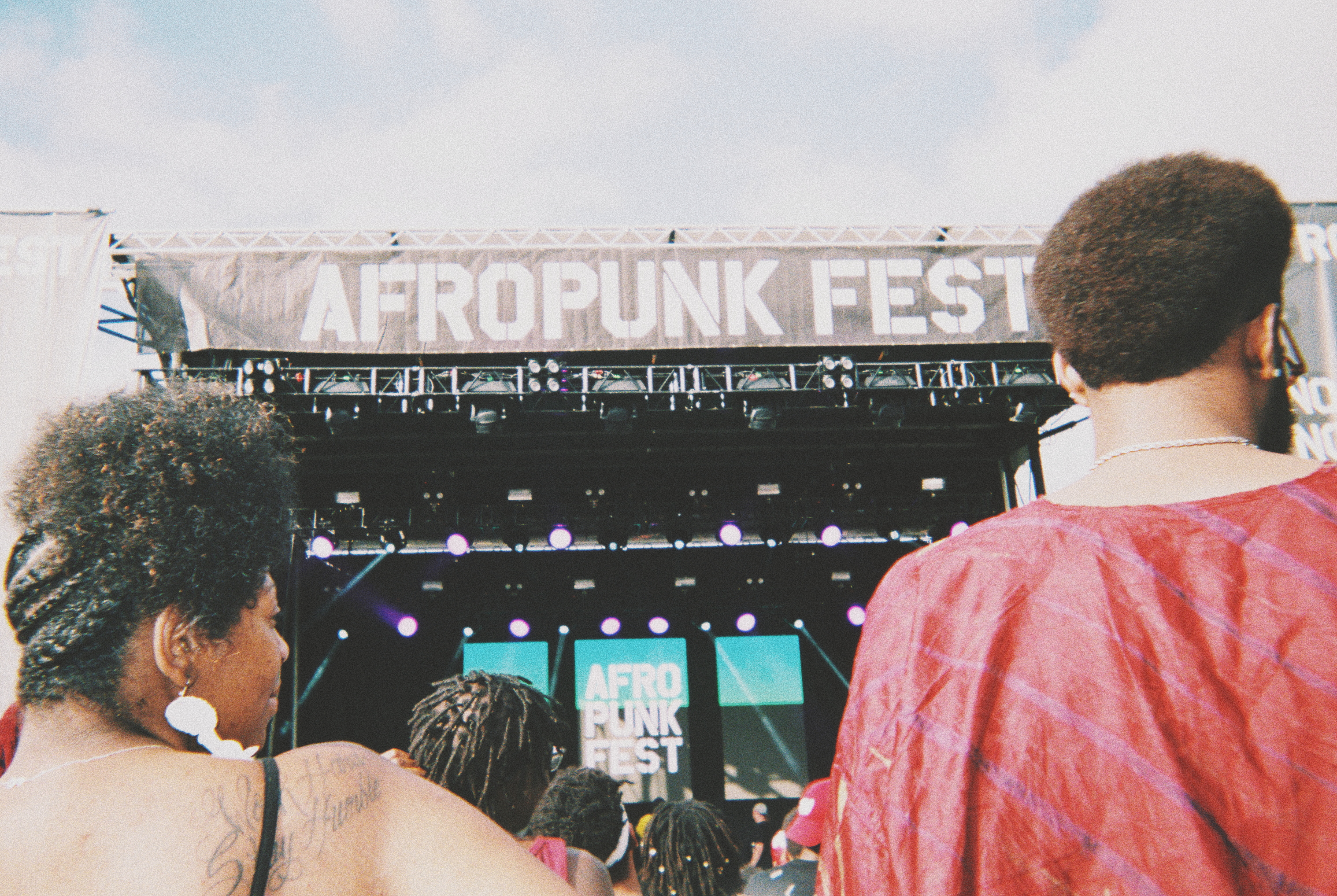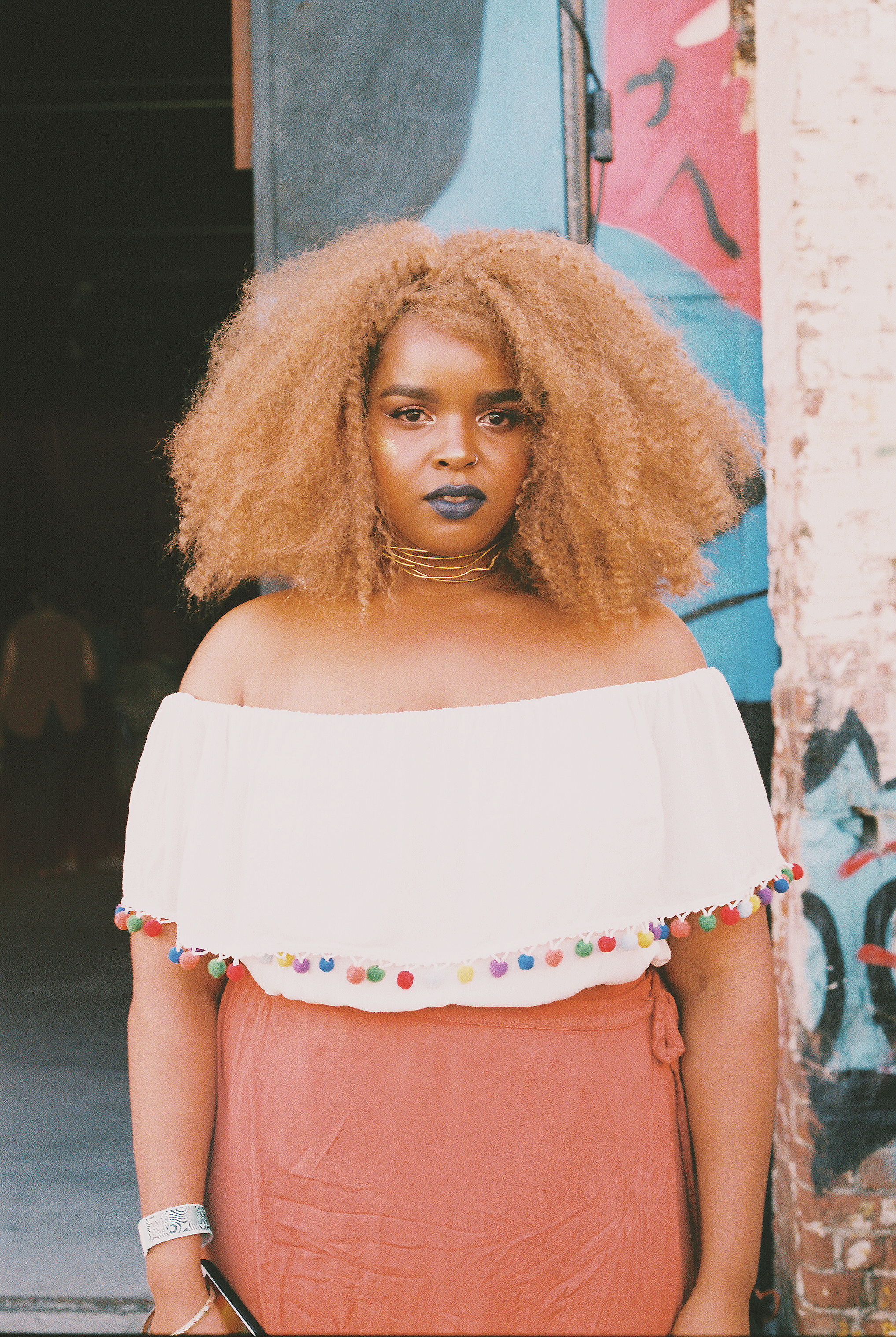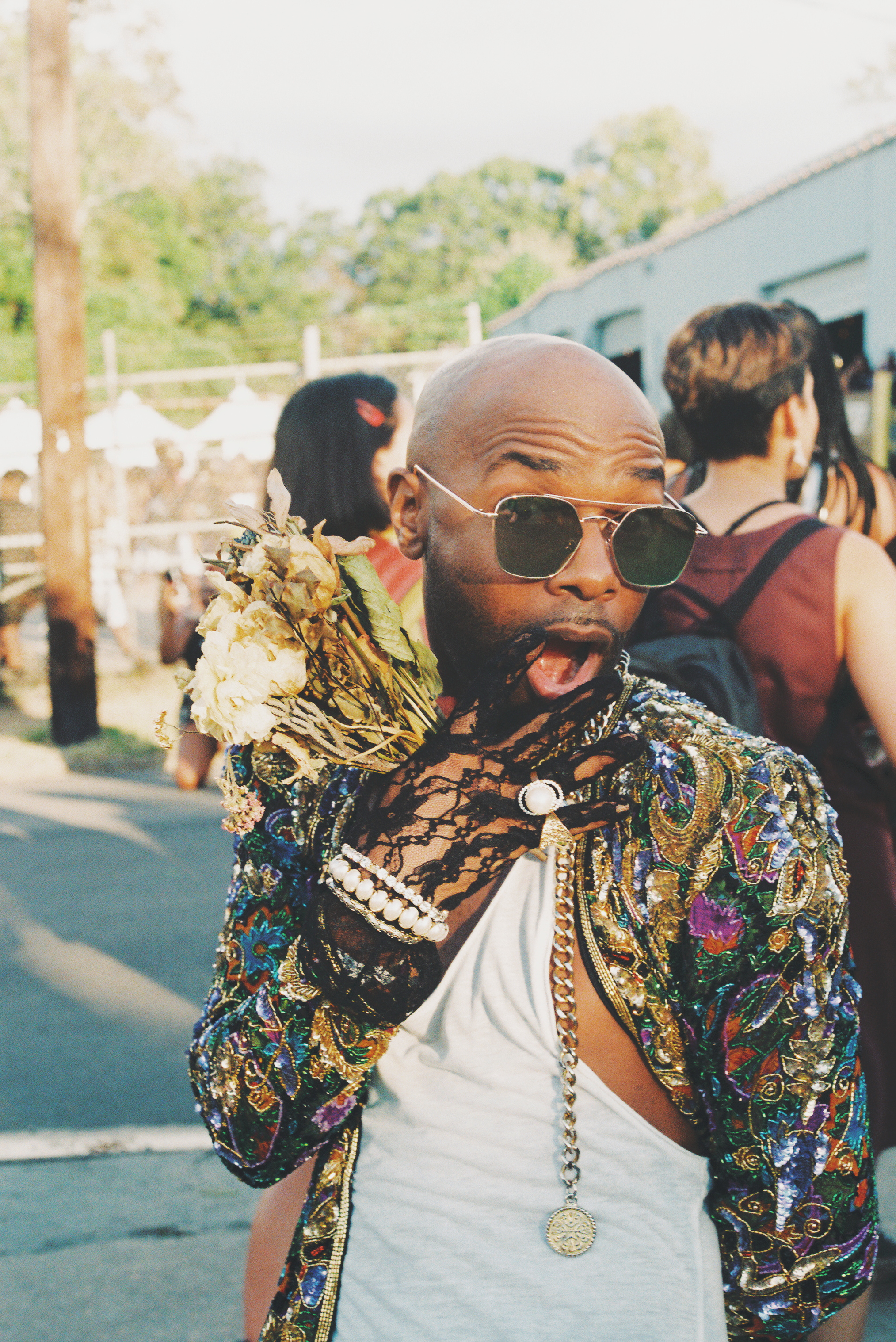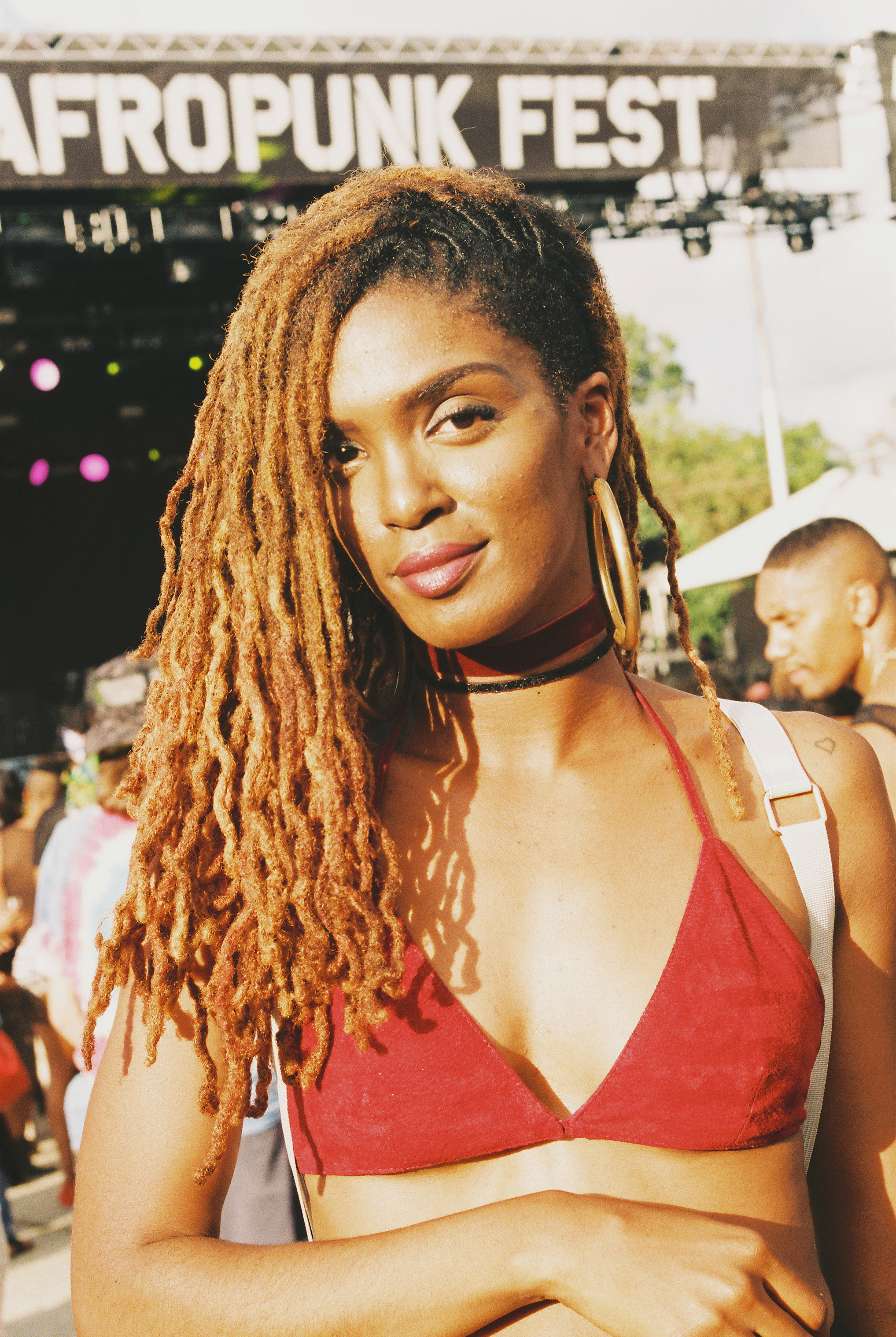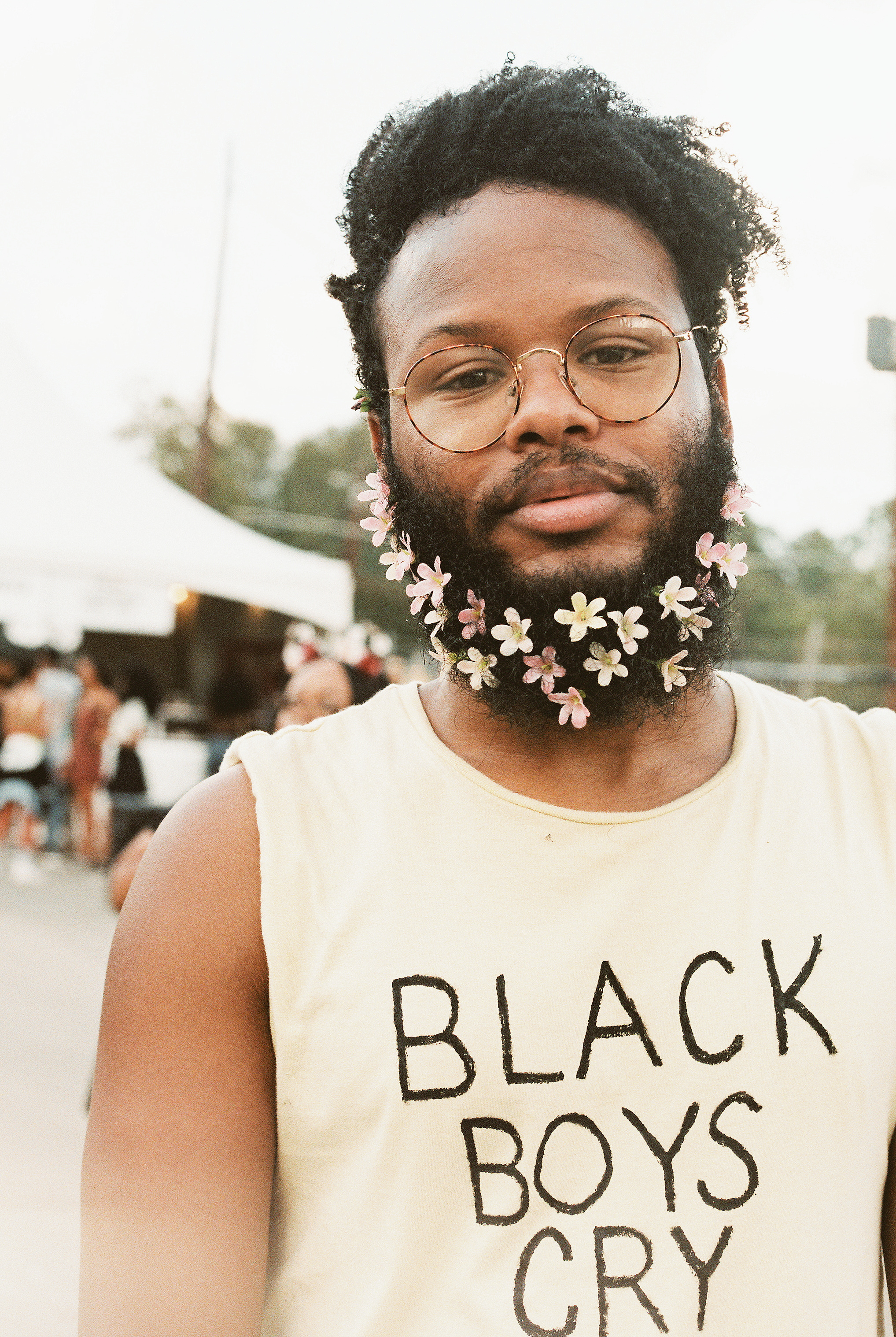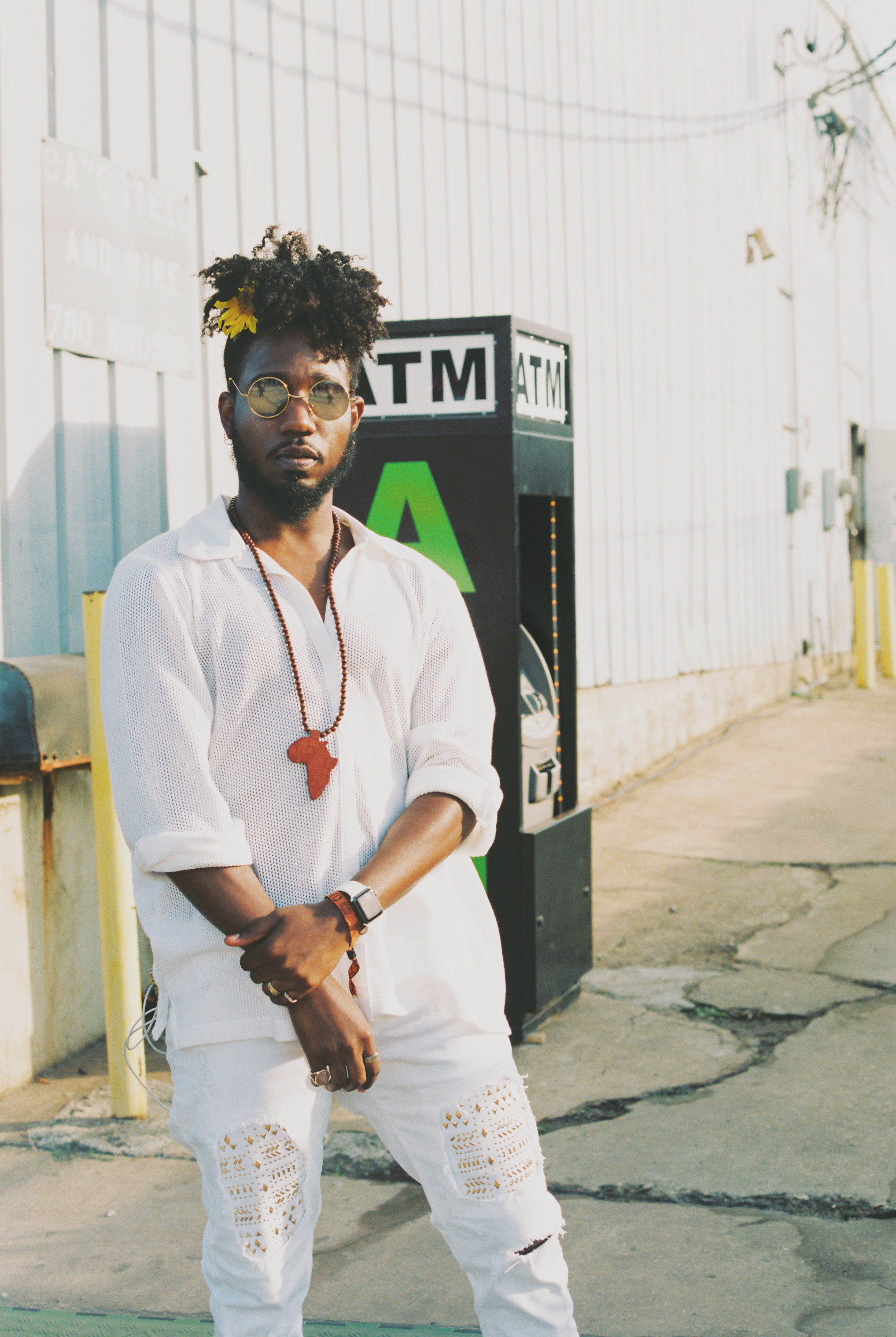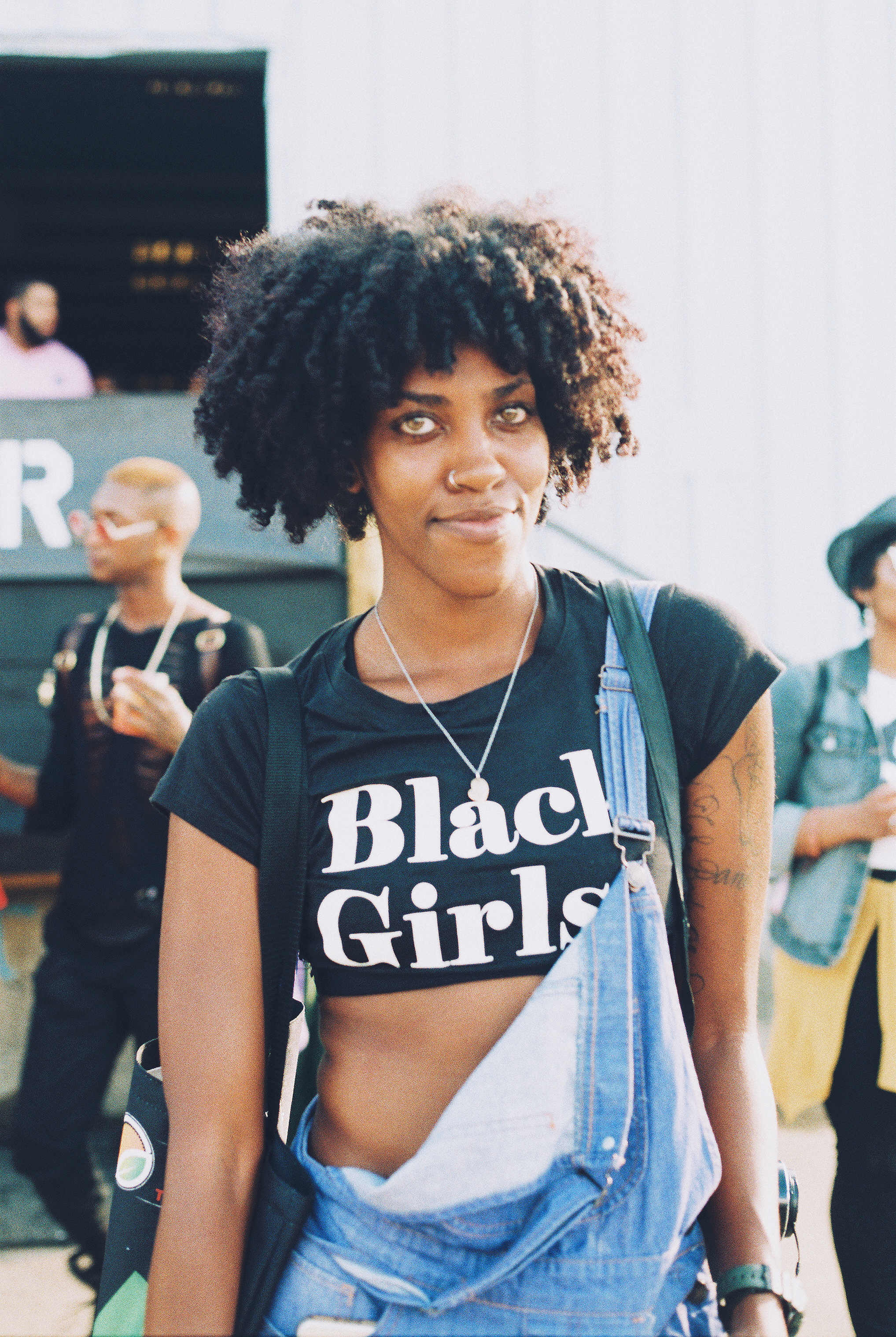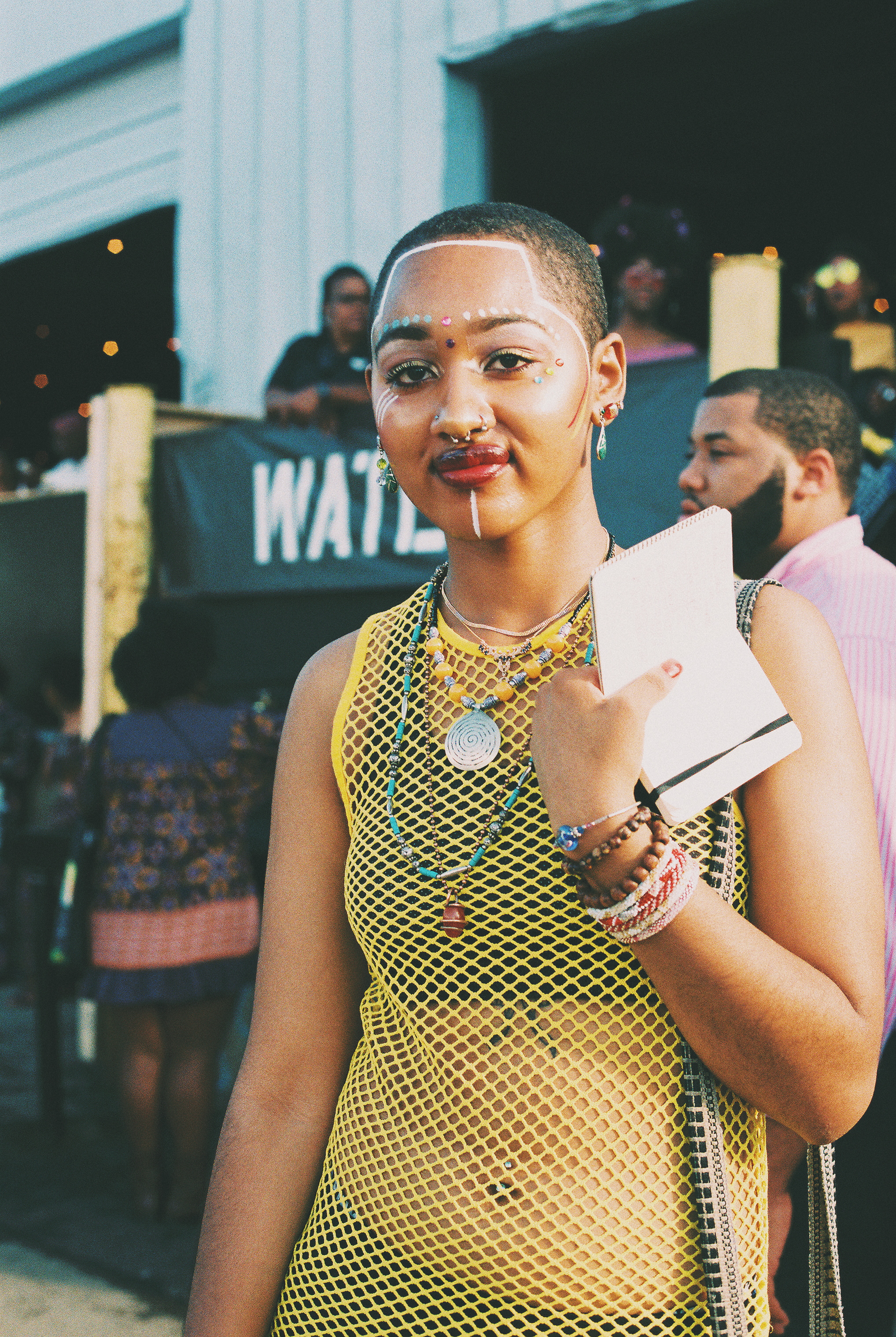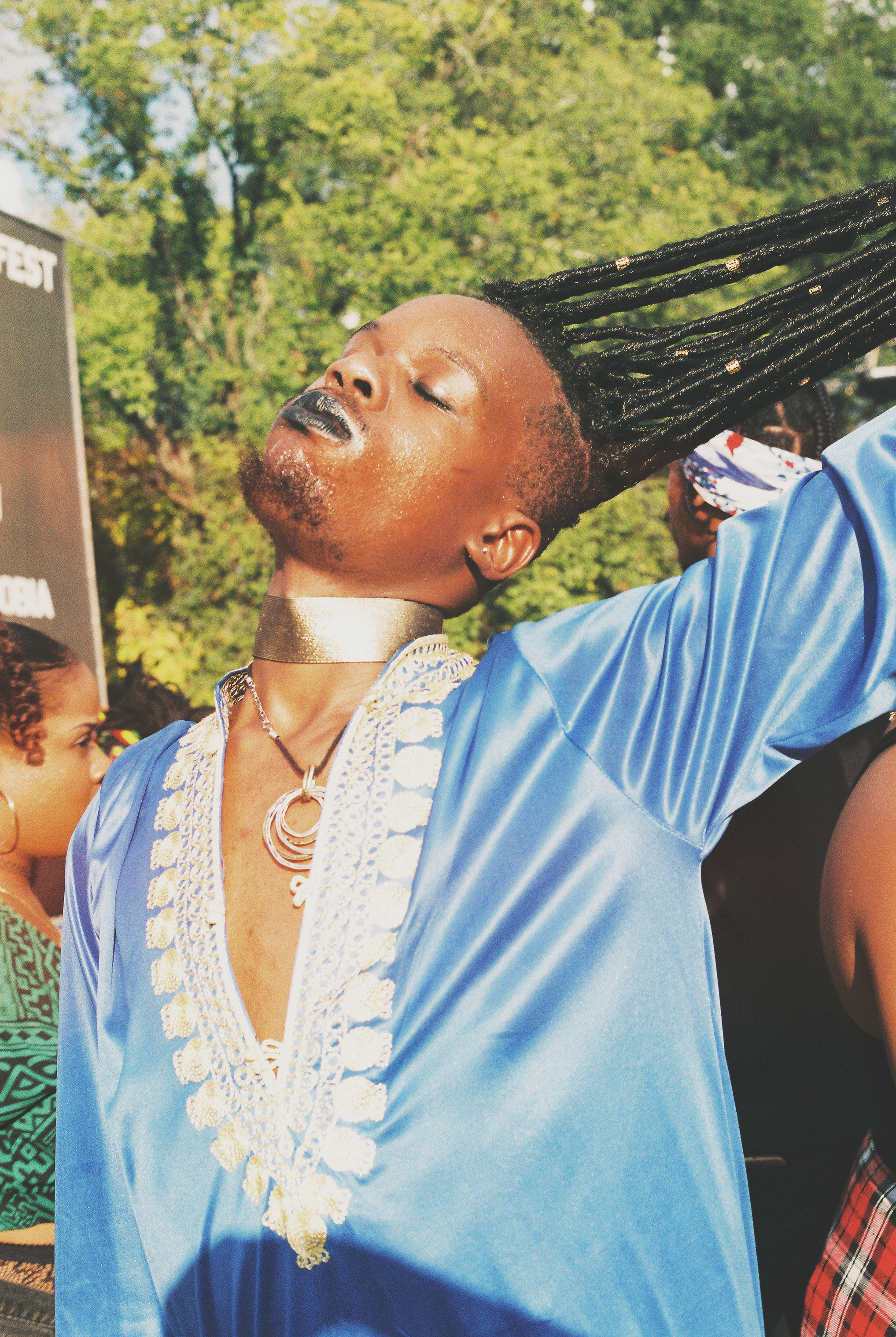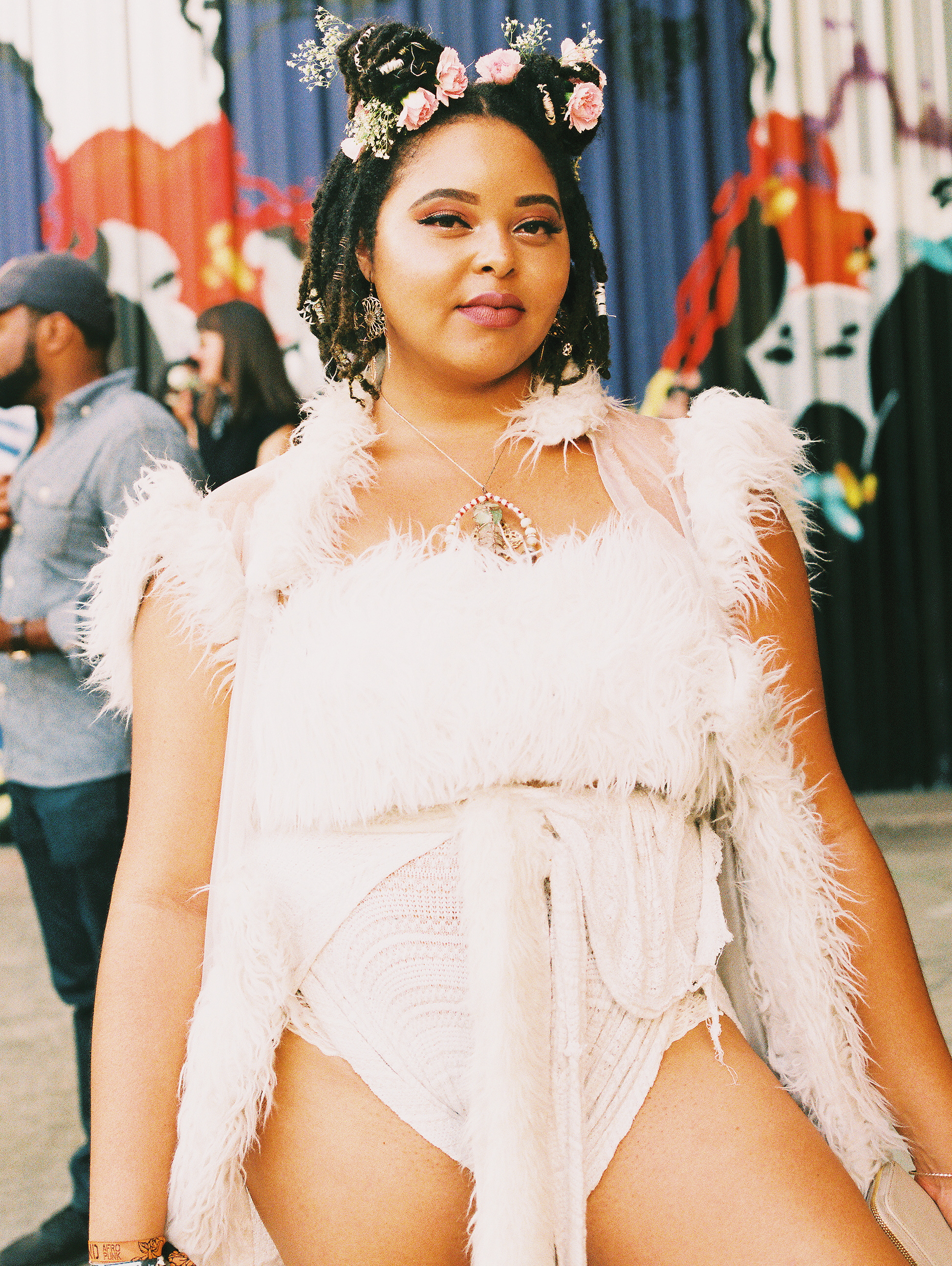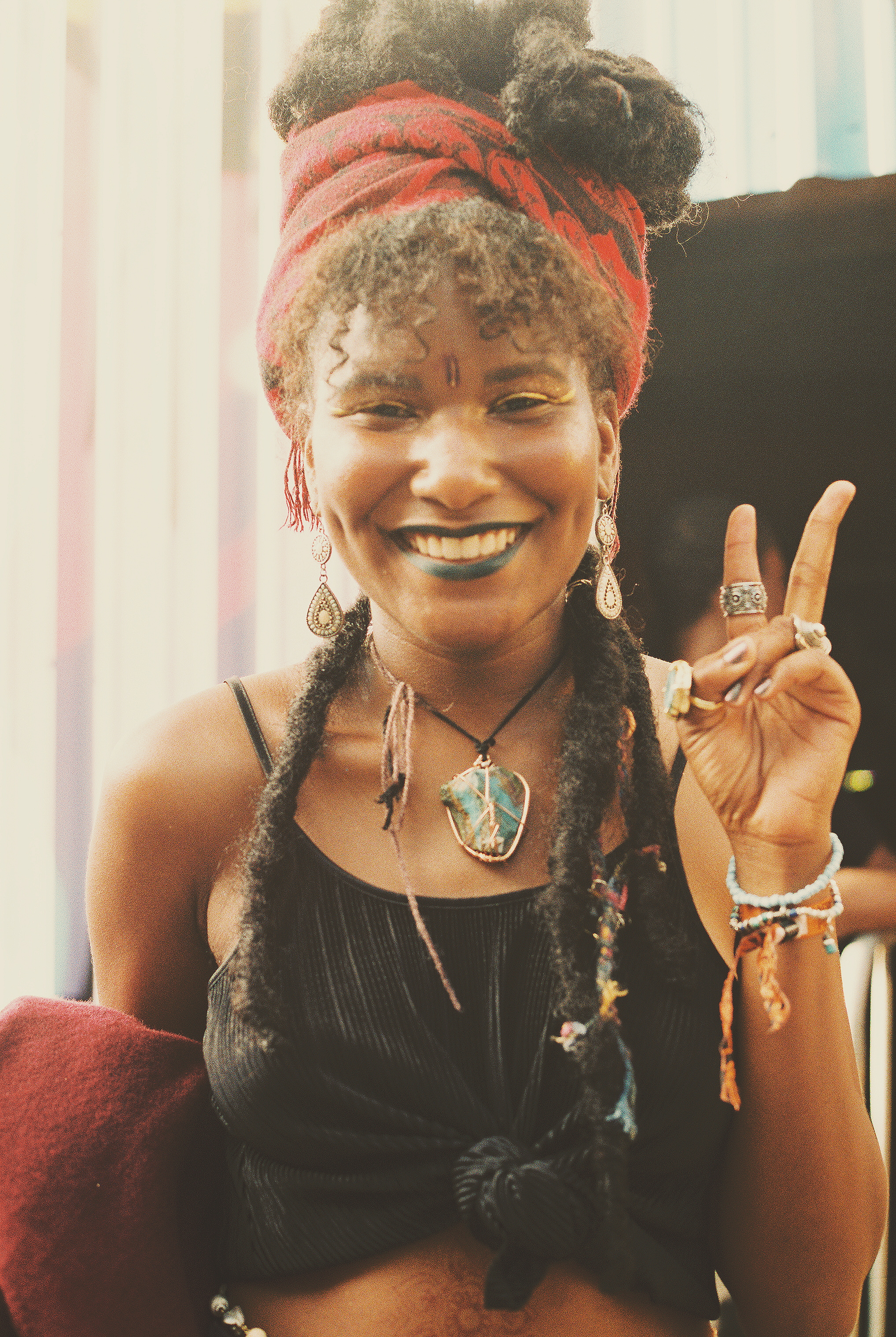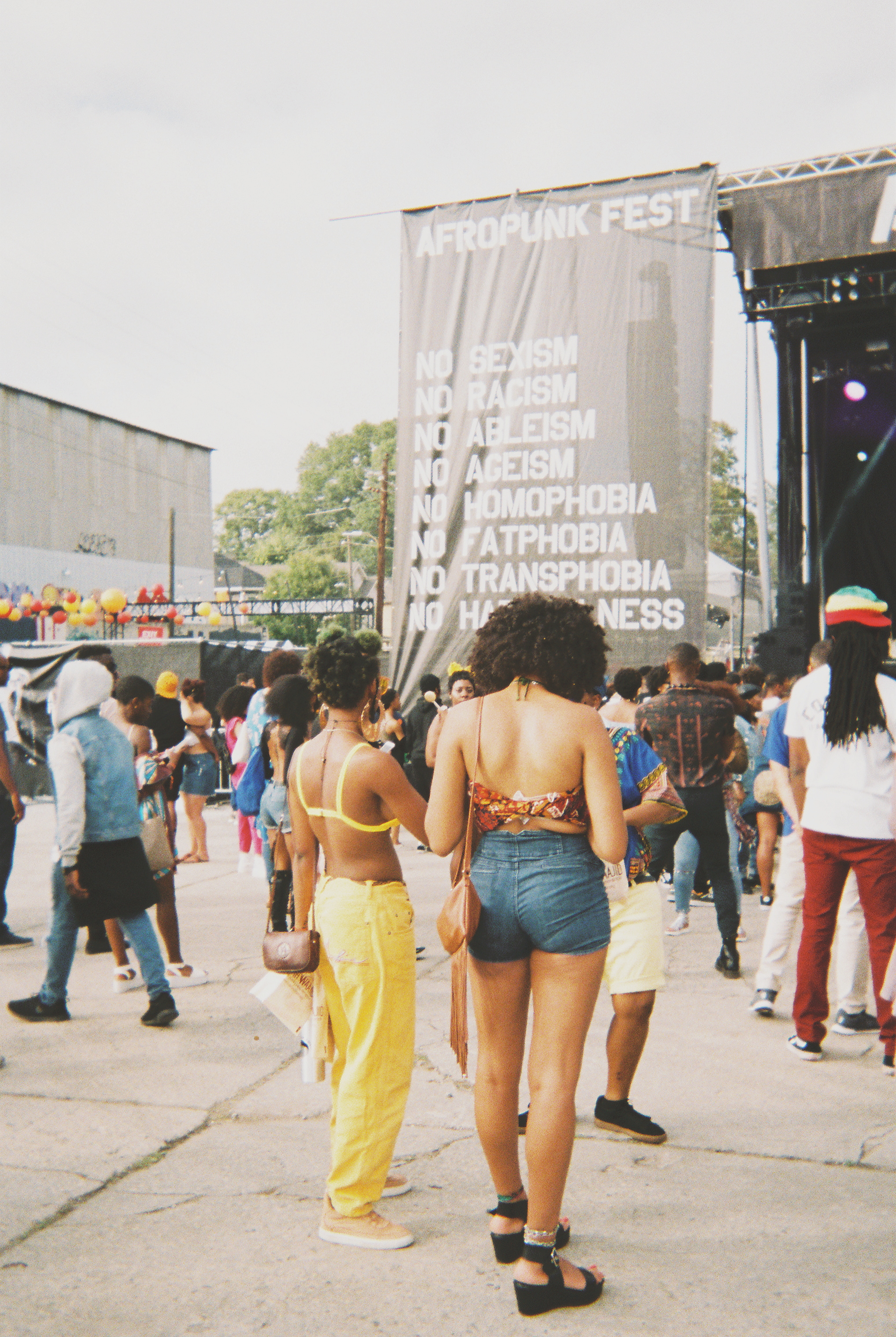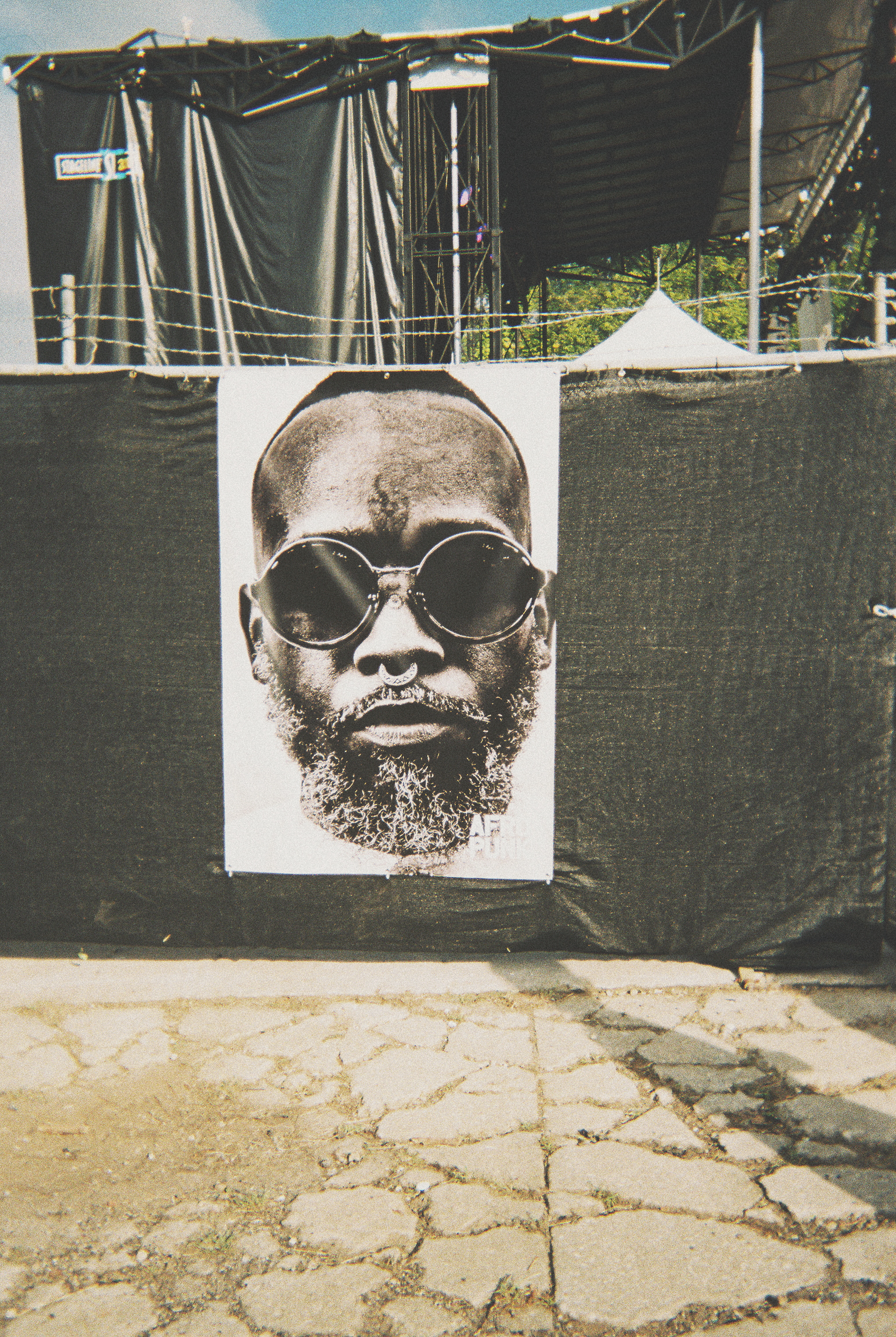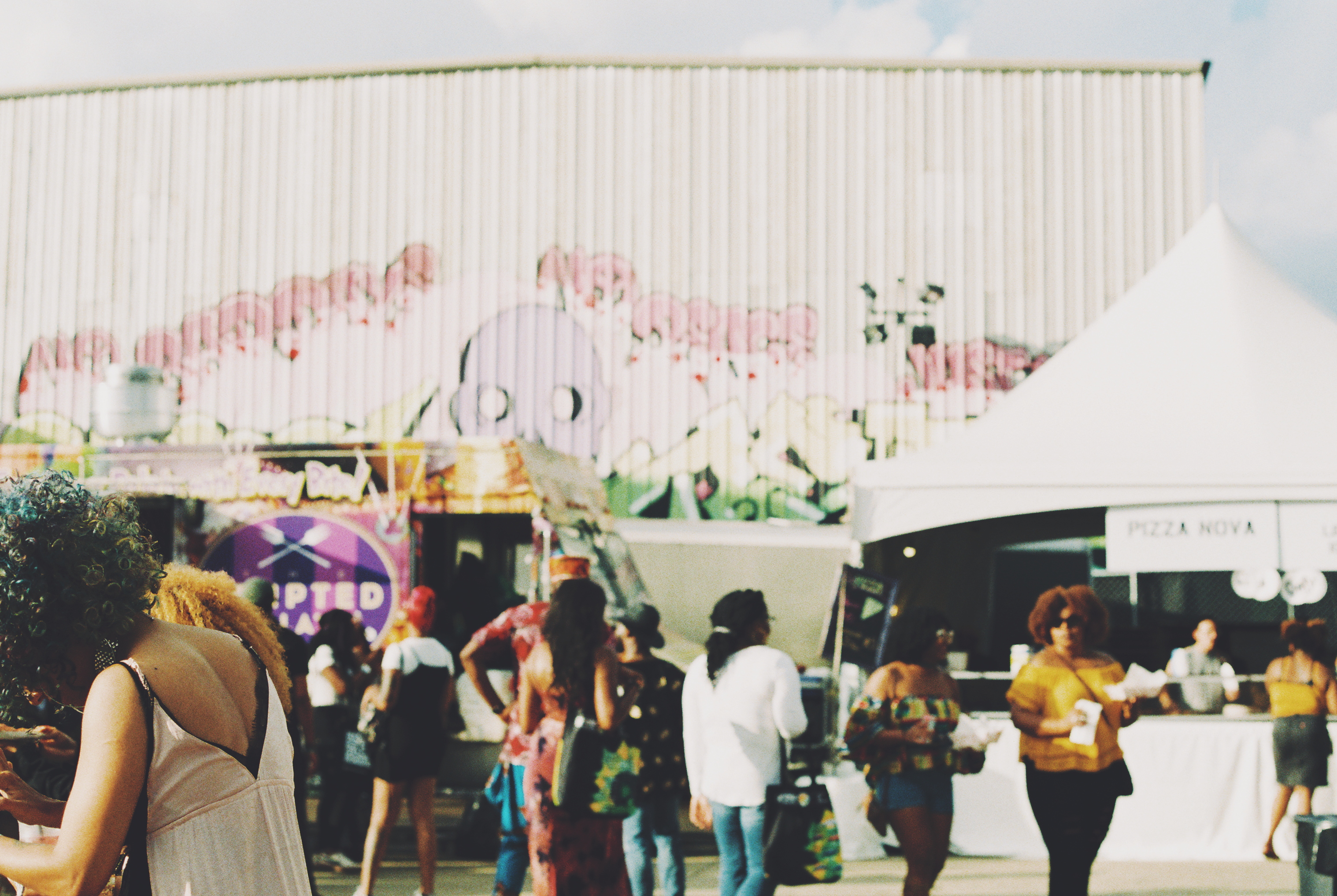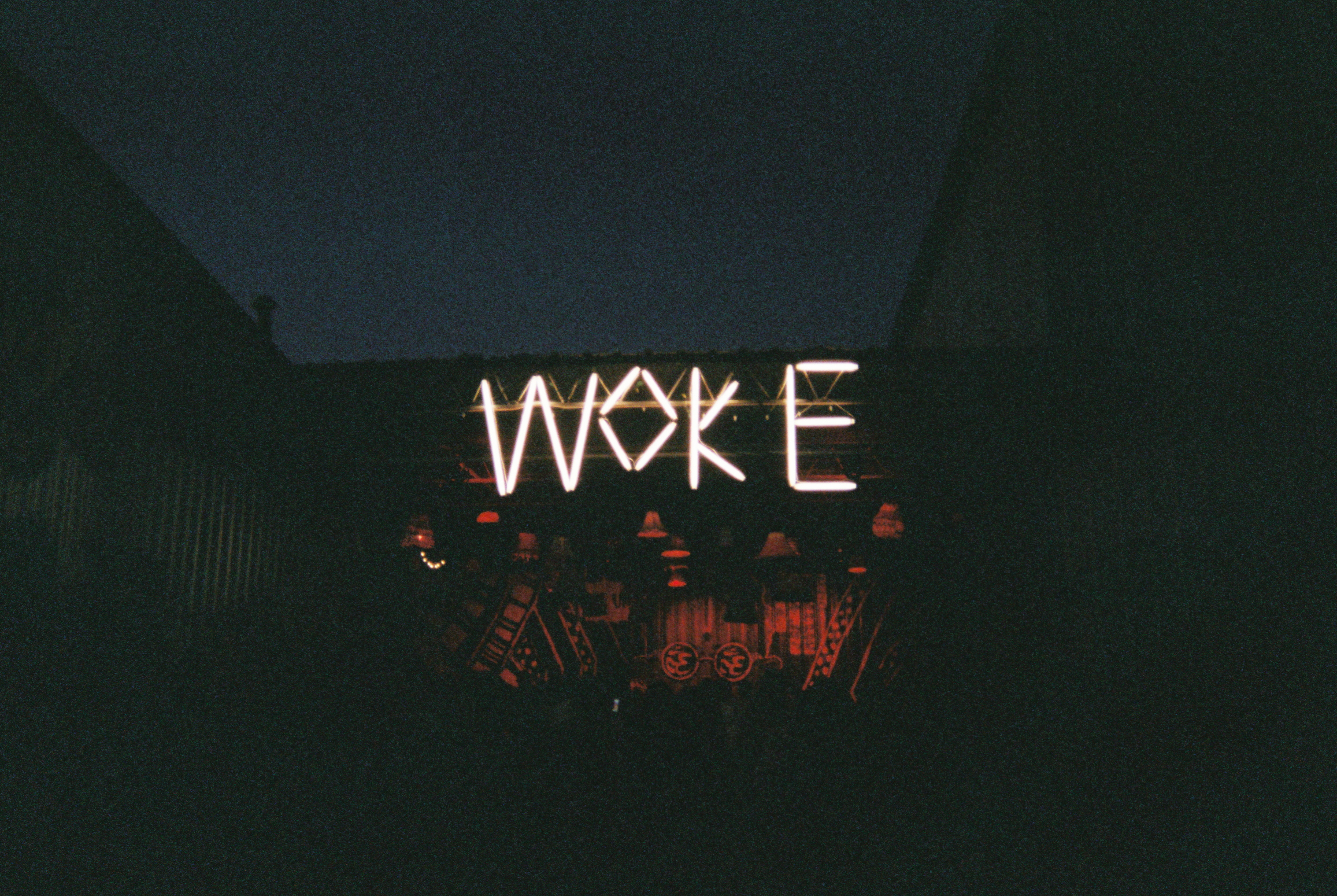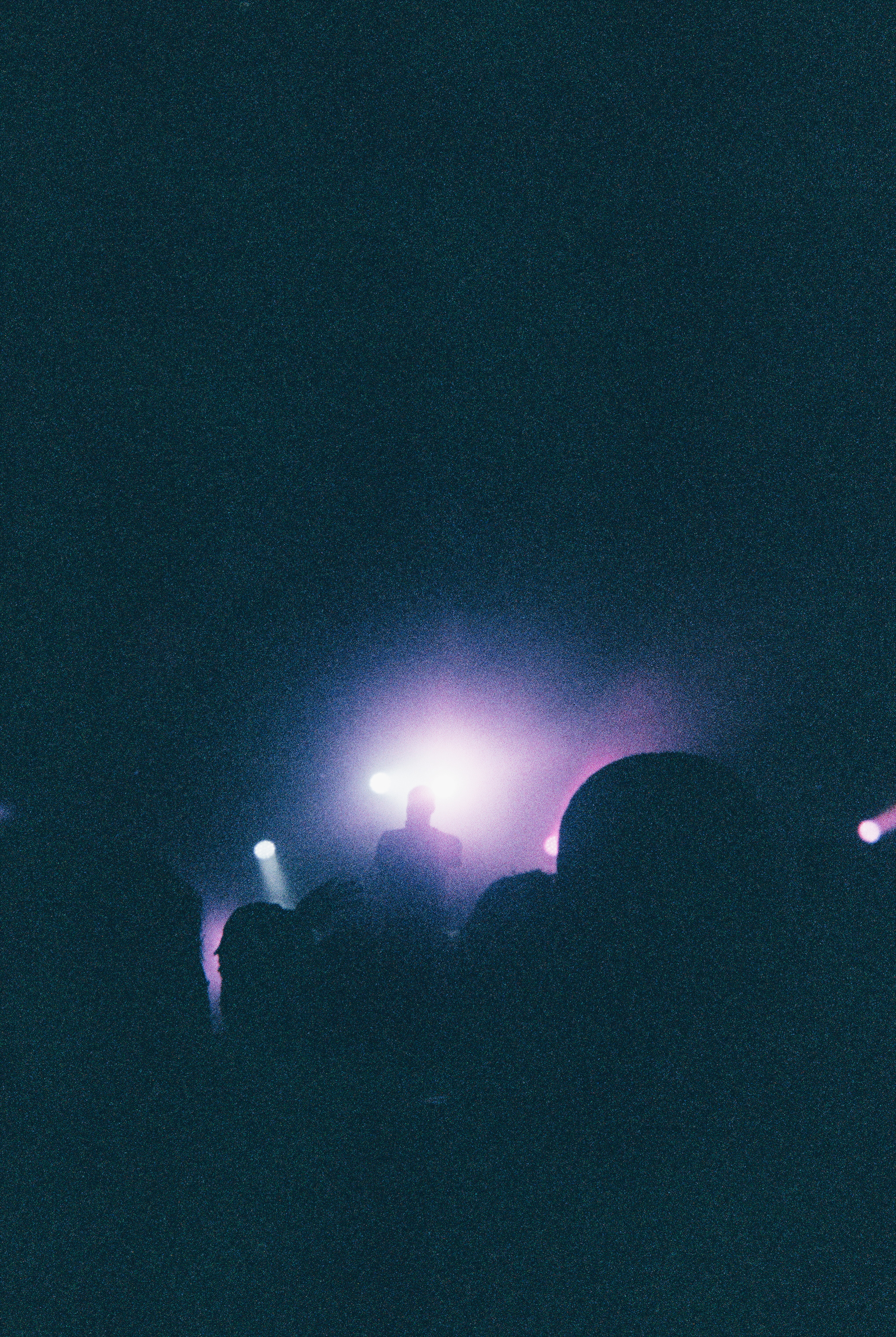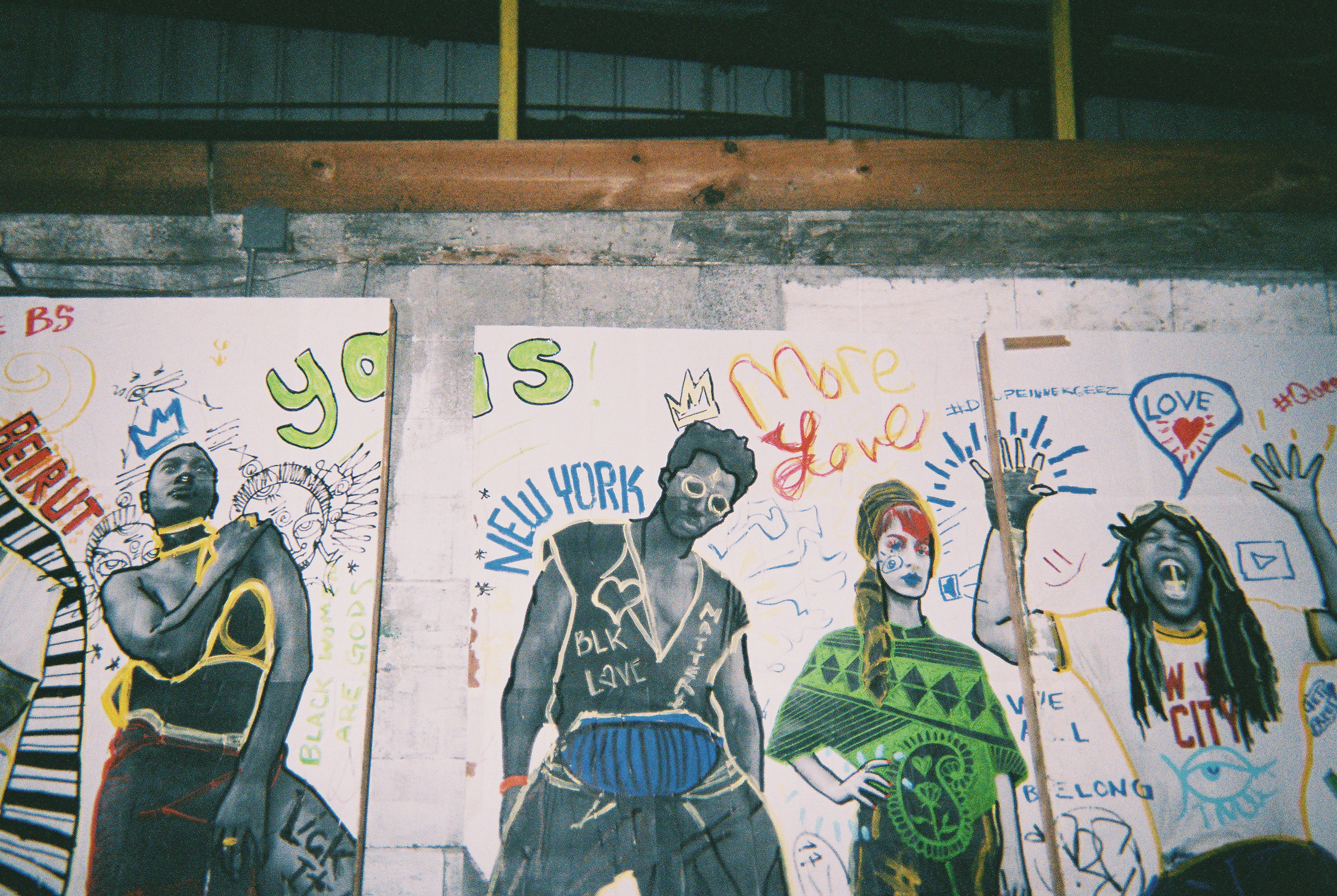The October 14-15 2017 Afropunk festival in Atlanta was electric explosion of color, song, and smell. It was an experience that was bursting, brightening and almost blinding all at once. As soon as you entered 787 Windsor Street in the Mechanicsville neighborhood, you could feel the buzzing crowd’s anticipation in the air, mingling with clouds of cigarette smoke and mouthwatering aromas drifting from the food booths, thick and cloying as honey.
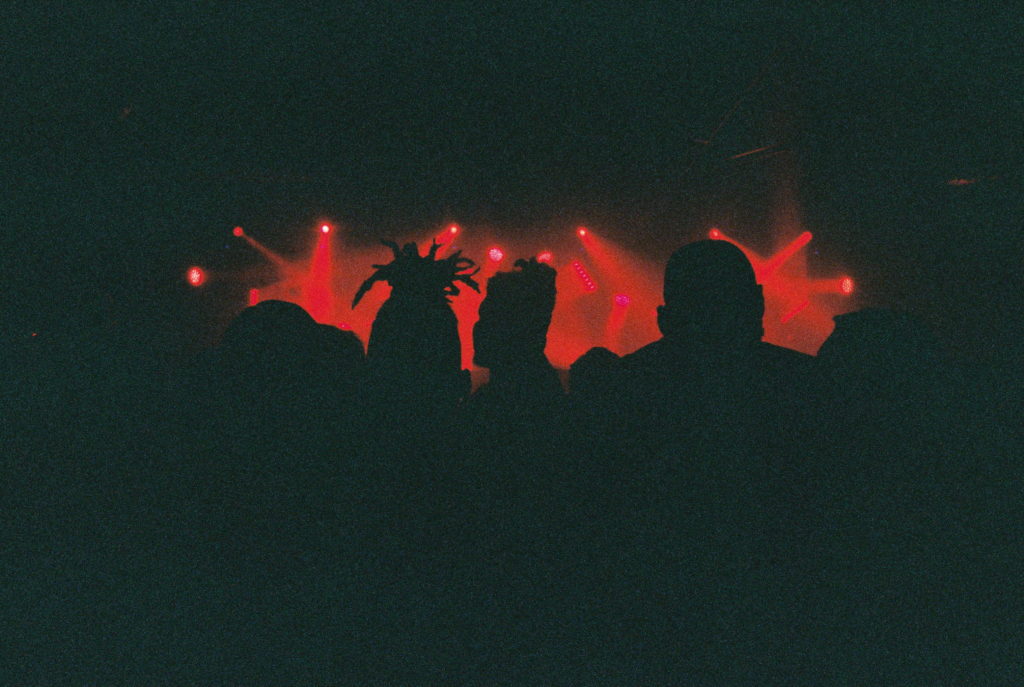 Looking into the crowd, you see oceans of Afropunkers swaying to the music like rolling waves, decked out in intricate designs and sporting styles that fuse punk rock aesthetic with African tribal culture. These beautiful black people wear their culture on their skin, draped in silks, leathers, elaborate constructions of bobby pins, vivid strands of yarn and swatches of cloth, feathered and glittered. Their souls’ curl upward from their temples with hair dyed every shade imaginable, from lavender and cobalt to powdery cotton candy pink. They wear braids, tightly-curled Bantu knots, dreadlocks adorned with baby’s breath and afros decorated with roses. These Afropunkers exude a vibrant energy. They channel their creative expressions outward, onto each other and into their environment. However, the abundance of creative expression does not stop there.
Looking into the crowd, you see oceans of Afropunkers swaying to the music like rolling waves, decked out in intricate designs and sporting styles that fuse punk rock aesthetic with African tribal culture. These beautiful black people wear their culture on their skin, draped in silks, leathers, elaborate constructions of bobby pins, vivid strands of yarn and swatches of cloth, feathered and glittered. Their souls’ curl upward from their temples with hair dyed every shade imaginable, from lavender and cobalt to powdery cotton candy pink. They wear braids, tightly-curled Bantu knots, dreadlocks adorned with baby’s breath and afros decorated with roses. These Afropunkers exude a vibrant energy. They channel their creative expressions outward, onto each other and into their environment. However, the abundance of creative expression does not stop there.
Afropunk’s innovative musical lineup has reached legendary status, and this year it did not disappoint. The festival’s featured artists including Danny Brown, Flatbush Zombies, Denzel Curry, Willow Smith, Miguel, and of course, the headliner, Solange. Throughout the two-day festival, the DJs keep the energy of the crowd going, playing songs from the featured artists or the latest R&B hits, such as Cardi B’s ‘Bodak Yellow’ and a lot of Kendrick Lamar. The music booms over the crowds, a constant thrum, like a heartbeat. You feel the sweat of the music trickle down your spine, warm and slow. The sound is so loud, the bass reverberates inside your chest, grasping and squeezing your heart, pumping the music through your blood. Simultaneously, a crowd of strangers sprawl out next to one another near the stages where Loaf Muzik plays, later sharing the space with artists such as Jamila Woods, Florista, and DJ OHSO. The crowd presses so close together you can feel the unified breath of the group. They resemble an assortment of mismatched beads strung together. The music twists its rhythm between them, pushing them against one another, creating the infamous mosh pits that release the aggression pent-up within the music itself, such as the ones that raged on at the Danny Brown performance for nearly five consecutive songs.
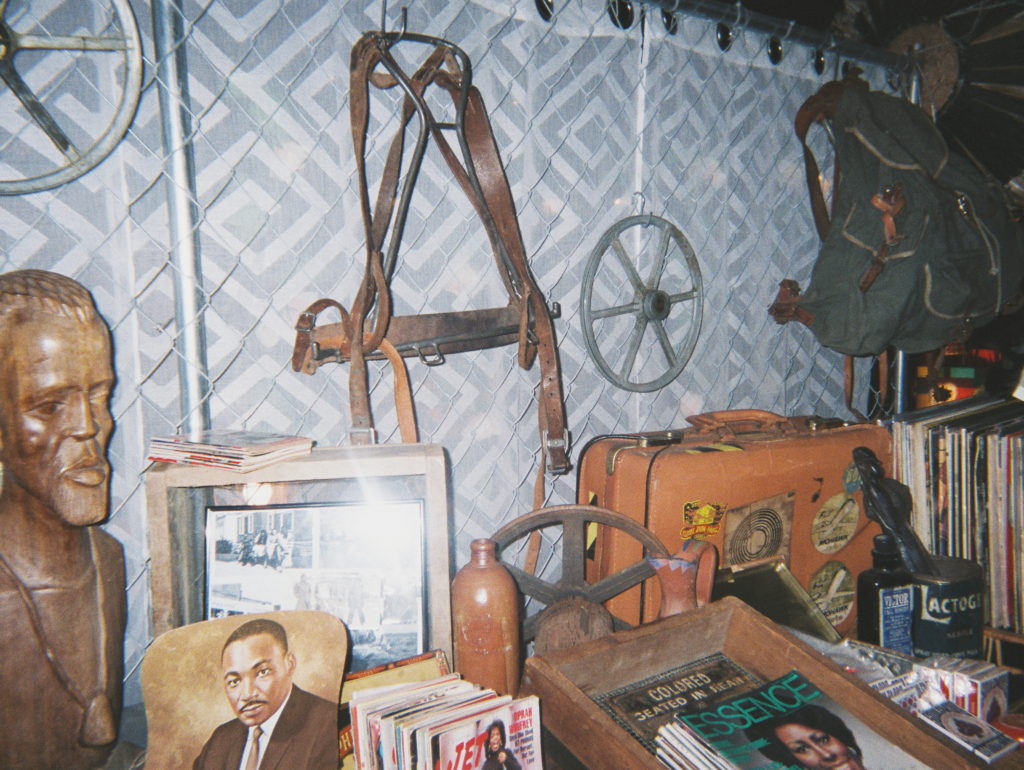 Afropunk’s devilishly-detailed visual art is just as stunning as its musical expression. Every nook and cranny of the venue features a colorful assortment of lost things, almost reminiscent of a nostalgia shop. At first glance, junk like beaten trunks and cases are haphazardly strewn throughout the venue. But then you notice framed pictures of smiling strangers that could have come from your grandma’s living room. Among them are vintage magazines, books, buttons, records, clothing and furniture, open to be touched and pondered. At this point, you realize these dusty objects are not there as an afterthought, but as a reminder. These are well-worn artifacts of the past that have a clear connection to black culture, and to a deeper story and past that can only be left to the imagination. This nostalgia is paired with modern art and installation, creating a simmering environment of creative inspiration and artistic creation by black people, for black people.
Afropunk’s devilishly-detailed visual art is just as stunning as its musical expression. Every nook and cranny of the venue features a colorful assortment of lost things, almost reminiscent of a nostalgia shop. At first glance, junk like beaten trunks and cases are haphazardly strewn throughout the venue. But then you notice framed pictures of smiling strangers that could have come from your grandma’s living room. Among them are vintage magazines, books, buttons, records, clothing and furniture, open to be touched and pondered. At this point, you realize these dusty objects are not there as an afterthought, but as a reminder. These are well-worn artifacts of the past that have a clear connection to black culture, and to a deeper story and past that can only be left to the imagination. This nostalgia is paired with modern art and installation, creating a simmering environment of creative inspiration and artistic creation by black people, for black people.
Afropunk creates an environment cultivating artistic expression whether it be through music, fashion, or visual art. This makes it more than just a festival, but a phenomenon. Afropunk transforms itself into a community of artists, intellectuals, and creatives, channeling their creativity into something bigger than themselves. Here, the people don’t just make the art. The people are the art.
 Rin Davis, 16, is a journalist, writer, photographer, and general creative who attends North Cobb High School for International Studies and really digs alternative black culture, political and cultural studies, and of course pizza. Always pizza.
Rin Davis, 16, is a journalist, writer, photographer, and general creative who attends North Cobb High School for International Studies and really digs alternative black culture, political and cultural studies, and of course pizza. Always pizza.
Photos by Rin Davis

